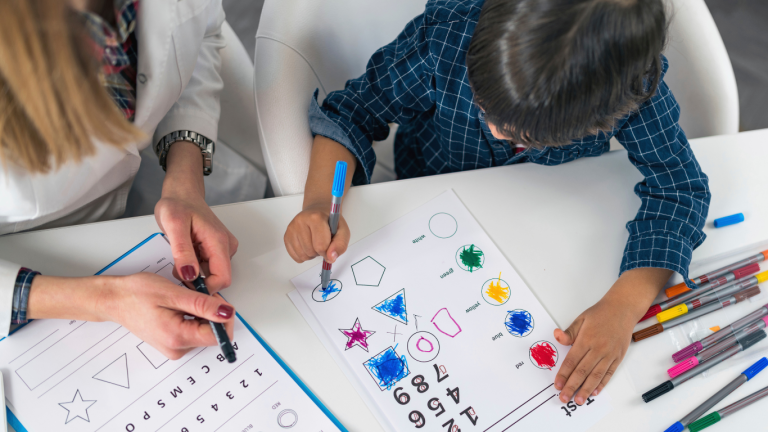Why Learning Disability Evaluations Matter
When your child struggles academically or socially, it can be difficult to know where to turn for answers. Learning disabilities can impact a child’s ability to succeed in school and beyond, but early identification and intervention can make all the difference. In Florida, families have access to numerous resources and evaluation services designed to diagnose and support children with learning disabilities. This blog will guide you through the key options for learning disability evaluations and support in Florida.
The Center for Autism & Related Disabilities (CARD)
Learning disabilities affect the way children process information, making it harder for them to read, write, calculate, or even communicate effectively. Early evaluation is critical because it helps:
Identify specific challenges, such as dyslexia, ADHD, or auditory processing disorders.
Develop personalized educational strategies to support the child’s learning.
Secure accommodations like extended test time or alternative learning materials.
Foster a child’s confidence by addressing their needs proactively.
Florida’s Early Steps Program
1. School-Based Evaluations
Public schools in Florida are required to provide evaluations for students who may have learning disabilities. If you suspect your child has a learning disability, you can request an evaluation through their school. Here’s how:
Submit a Written Request: Write a letter to the school principal or special education coordinator explaining your concerns and requesting an evaluation.
Initial Meeting: The school will schedule a meeting with you to discuss your concerns and determine if an evaluation is necessary.
Evaluation Process: If approved, the school conducts assessments to identify learning disabilities and determine eligibility for special education services.
Key Services Through Schools:
Individualized Education Programs (IEPs) for students with significant disabilities.
504 Plans for students requiring specific accommodations.
Access to speech therapy, occupational therapy, and other related services.
2. Private Testing Centers
For a more comprehensive evaluation or quicker results, many families turn to private testing centers. These centers employ licensed psychologists and specialists who provide in-depth assessments. Some well-known private centers in Florida include:
Child Development Centers: These centers specialize in evaluating and treating developmental and learning challenges.
Neuropsychological Clinics: These clinics offer advanced testing methods to diagnose complex learning disabilities and related conditions.
Local Psychologists: Many licensed psychologists offer learning disability evaluations in private practice settings.
Advantages of Private Testing:
Faster evaluation timelines compared to school-based services.
Detailed diagnostic reports that can be used in educational and clinical settings.
Customized recommendations tailored to your child’s needs.
3. Early Intervention Programs for Young Children
For younger children showing signs of developmental delays or learning difficulties, early intervention programs can provide evaluations and support. Florida’s Early Steps Program serves children up to 36 months old and offers free developmental evaluations to determine eligibility for services.
4. University-Based Clinics
Several Florida universities have psychology or education departments that offer learning disability evaluations at reduced costs. These programs often have supervised graduate students conducting assessments, making them a budget-friendly option for families.
Financial Assistance for Evaluations
Learning disability evaluations can be costly, but financial assistance options are available:
Health Insurance: Check if your plan covers neuropsychological evaluations.
State Assistance Programs: Florida offers programs like Medicaid and the Gardiner Scholarship for children with disabilities, which may cover evaluation costs.
Sliding Scale Fees: Many private clinics offer reduced fees based on income.
Post-Evaluation Support
Once your child’s learning disability is identified, several resources can help:
Educational Support
IEPs and 504 Plans: Work with your child’s school to create a plan that includes accommodations and specialized instruction.
Tutoring Services: Many organizations in Florida offer one-on-one or group tutoring for children with learning disabilities.
Therapy and Interventions
Behavioral Therapy: Helps address challenges like ADHD or emotional regulation.
Speech and Language Therapy: Supports children with communication difficulties.
Occupational Therapy: Improves fine motor skills and adaptive functioning.
Support Groups and Advocacy
Learning Disabilities Association of Florida: Provides advocacy, resources, and support groups for families.
Meetup Groups: Websites like Meetup.com list parent support groups in your area.
Online Communities: Join forums and social media groups dedicated to parenting children with learning disabilities.
A learning disability diagnosis is not the end of the road—it’s the beginning of a journey toward tailored support and success for your child. Florida offers a wide range of evaluation services, educational resources, and support networks to help families navigate this journey. By taking the first step toward evaluation and connecting with local resources, you can empower your child to reach their full potential.



